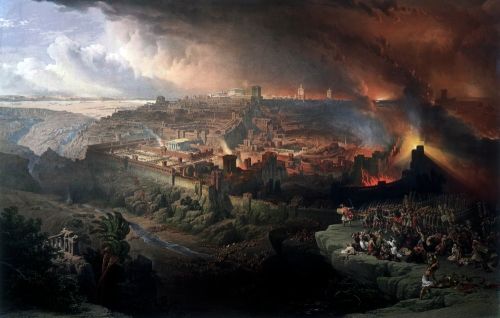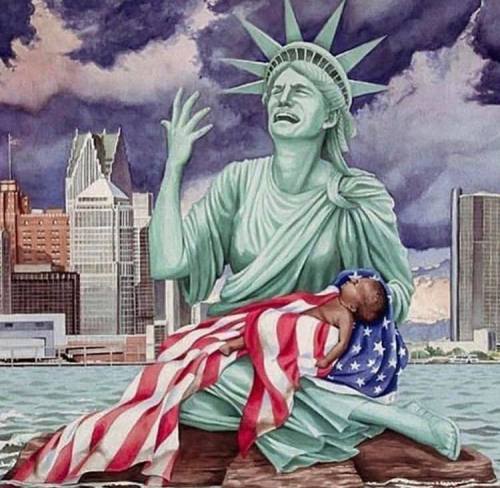
Now learn a parable of the fig tree; When his branch is yet tender, and putteth forth leaves, ye know that summer is nigh: So likewise ye, when ye shall see all these things, know that it is near, even at the doors. Verily I say unto you, This generation shall not pass, till all these things be fulfilled. Heaven and earth shall pass away, but my words shall not pass away. (Matthew 24:32-35)
With the cross looming just days away, Jesus’ naïve apostles wondered about Jesus’ coming kingdom and what part they would play. “And as he sat upon the mount of Olives, the disciples came unto him privately, saying, Tell us, when shall these things be? and what shall be the sign of thy coming, and of the end of the world?” (Matthew 24:3, emphasis mine) The question inaugurated Jesus’ end-times sermon known as the Olivet Discourse. The sermon, addressed to Jesus’ Jewish disciples, delineated the events that would take place in the Great Tribulation spoken of by the Prophet Daniel[1] and detailed by John the Apostle.[2] Now, in order to pinpoint the proximity of these events, Jesus offered the Parable of the Fig Tree (our passage above).
Israel is compared to a fig tree in the Old Testament,[3] and Jesus uses this imagery to signal the last days. Just as the budding of a fig tree singals the proximity of summer, so the “budding” of Israel singals the nearness of the Lord’s return. The generation that witnesses Israel bud, Jesus said, “shall not pass, till all these things be fulfilled” (Matthew 24:34).
Ezekiel was one of the Jewish priests taken to Babylon in the first group of captives.[4] He was contemporary with the prophets Jeremiah and Daniel, and he ministered to the captives in Babylon. God gave the Prophet Ezekiel a preview of Israel’s rebirth. Ezekiel describes his experience as “The hand of the LORD was upon me, and carried me out in the spirit of the LORD, and set me down in the midst of the valley which was full of bones” (Ezekiel 37:1). “The spirit of the LORD” refers to the Holy Spirit who appears often in the Old Testament. Often we think of the Holy Spirit showing up at Pentcost[5] in the New Testament, and indeed He operates differently today than in Old Testament times, but He was no less active in those days. Today, the Holy Spirit indwells every true believer. In Old Testament time, He “came upon” individuals for specific purposes.
The Holy Spirit carried Ezekiel in a “vision” to a valley full of dry bones. We learn later that these dry bones represent the nation of Israel. “Then he said unto me, Son of man, these bones are the whole house of Israel: behold, they say, Our bones are dried, and our hope is lost: we are cut off for our parts” (Ezekiel 37:11, emphasis mine). Dry bones indicate that these bodies died many years before, perhaps hundreds or even thousands of years. We know by experience that when a body dies and is left unattended, it will decay. Scavengers will eat away at the flesh until nothing is left but the bones. The bones maintain their “boniness” for a long time, but eventually, the sun will bake them dry and they become brittle and eventually turn to dust.
The bones Ezekiel saw were disarticulated and scattered throughout the valley. The vision foretold of a time when Israel would be broken and scattered all over the world with no sign of life and no hope for revival. “And he said unto me, Son of man, can these bones live? And I answered, O Lord GOD, thou knowest” (Ezekiel 37:3). Ezekiel saw no hope of life for these bones, but he trusted that with the Lord, nothing is impossible.[6]
God commanded Ezekiel to prophesy to the dry bones. In his vision, Ezekiel witnessed the bones come together and tendons grow to hold the frame together. Then muscle and finally skin, but the bodies remained dead.[7] Then God told him to prophesy to the wind so that it would breathe life into the lifeless bodies. Ezekiel prophesied as instructed and the bodies came alive and stood to their feet and became a mighty army.[8]
After rejecting their Messiah, God punished Israel by destroying the nation and scattering the Jews all over the earth. This took place in 70 A.D. when the Roman general Titus destroyed Jerusalem and razed the Temple to the ground. The nation of Israel died that day, and its bones were scattered among the Gentile nations. Everywhere they went, they were persecuted, often having to flee from one nation to another with no place they could call their own. Remarkably, they never lost their national identity, traditions, customs, and language, and at every Passover celebration they recited the incessant prayer, “Next year in Jerusalem.”
For nearly 2000 years, the land lay fallow. By all human reconning, the land became a barren desert wasteland. Jews throughout the world could only dream of returning once again to their beloved homeland. Then at the turn of the 20th Century, God started working on Israel’s behalf again. The dry bones started coming together, Then on May 14, 1948, the dry bones stood up “a mighty army.” Immediately, they faced a fight for their lives, but God intervened and the newborn nation survived. Then in 1967, another invasion by their hostile, more powerful neighbors ended in only six days by God’s help, and Israel regained control of their beloved Jerusalem and the Temple Mount.
Today, more than 70 years later, tiny Israel is considered the eighth most powerful country in the world.[9] And we are that generation of which Jesus spoke that has witnessed the fig tree bud and the dry bones rise. This is the generation that will see the Lord’s return. Are you ready? If not, read my page, “Securing Eternal Life.”



